On 13th November 2012 Romania had hosted the Conference on Peace and Security in Europe and Asia, an impressive gathering of Europe`s most important political brains, destined to express the support for Platform for Peace and Security in Europe and Asia.
The Platform is a designed model of cooperation and peace created by the lofty President of Kazakhstan-Nursultan Nazarbayev.
The Platform for Peace and Security is an intellectual replay to the challenges of XXI century: war, criminality, terrorism, inter-ethnic conflicts, inter-state wars, collapse of international organizations such as United Nations and his affiliated agencies etc.

All this conceptual and reality`s defiance are becoming part of the security concerns of XXI century.
No state and no individual are immune to this general collapse of authority and legality, that is fringes the collapse of organized society.
The only solution for a reconstruction of world and for solving the humanity problems is to restart the National State concept.
A National State that will be, undoubtedly, different from his XIX century prototype. The fights for respect of human rights and for managing globalization trends must be implicated in the reconstruction of state authority.
Without the state authority reconstructed and put at the heart of international law and norms, no global issue can be resolved.
The re-construction of XXI century national state is the conceptual center of the Platform for Peace and Security.
The Platform for Peace and Security is solving the evils of the globalization such as: terrorism, drug trafficking, crime and globalized crime only by concentrating on the reconstruction of a modern, sophisticated and up to date national state.
This approach is truly revolutionary, as in the last two decades the international efforts, that could have being put to a much better use, where dedicated to dissolve and tragically destroy the national state authority.
All this effort of destroying and portraying as outdated and even criminal the national state, had as only result the dissolution of state authority, the dramatic rise of international criminality, a policy of international involvement in the internal affairs of the sovereign countries and the destruction of private property and the terrible crimes against human rights, that the last century had ever witness.
Reconstructing national statehood is an intricate part of re-establishing the global equilibrium.
Globalization is a dangerous trend that, without being proper managed, could distort and destroy people’s lives and the only possible coordinator for a better understanding and use of globalization is the national state.
Instead of perceiving the national state as an obstacle against globalization, the forces of globalization will do better to understand that only the national state is the proper provider of globalization and if the current trends of opposing globalization and national state are allowed to continue, the nation state will be trimmed and destroyed and globalization will become a totally negative trend.
None of the current global problems of the mankind can be properly addressed in the absence of a strong a pertinent national state.
The spread of mass destruction weapons and the terrorism is only the result of nation state weakness.
No mass destruction weapons could ever be transferred to private groups, as long as a state is functioning and running.
Only when the former Soviet Union collapsed, the matter of mass destruction weapons was tabled as an emergency. Only after Afghanistan state was destroyed by the internal convulsion, the terrorist movement obtained a save heaven and created the base for terrorism to attack.
At the beginning of 2000, the North Africa, composed of shamble states, with long desert border, such as: Mauritania, Niger, Mali, Algeria etc. become the center for new terrorist activity.
The lessons of the last two decades are showing clearly that: only by offering support to national state to overcome the globalization related weakness, can insure that the flow of terrorism and destruction weapons can be stopped.
Nation`s rights are human rights.
With the end of Cold War a new concept had flourished, the concept that human rights are to be imposed against national rights. The theory it was that: the only legitimate way to assert human rights is to destroy national state rights.
This wrong policy had created the nightmare of Kosovo, where in order to promote individual and minority rights a global intervention had destroyed Serbia, had killed 100.000 peoples and had created more than 1 million refugees.
The final result was the creation of an illegitimate state, the creation of a vacuum and tension area in the center of the Balkans.
What have even aggravated the aggression against national rights, was the unlawful use of the humanitarian intervention concept to destroy nation state, to aggravate crisis, to persecute democratic movements and to install a general atmosphere of distrust and insecurity at world d level.
As the Platform for Peace and Security had stated: By this, basic human rights and freedom are jeopardized, ignored or directly violated under the slogan of defending the very rights and freedoms.
Human rights are nation rights – this must be the key concept of insuring a peaceful world and preventing the masquerade of so called human rights protection by war to be used as pretence for foreign intervention and bluntly aggressions.

Security by cooperation.
The last two decades after the Cold War where based on the concept of uni-polar world, destruction of nation state , the blunt disregard for human rights and the forced cooperation by so called coalition of the willing, such us in Iraq intervention in 2003.
The only reasonable and practical way of creating a cooperation system in Europe and Asia could be based only on cooperation models and the most successful one is that of Organization for Security and Cooperation in Europe in 2010, under Kazakhstan Presidency.
Kazakhstan can play an instrumental role by the Platform for Peace and Security in uniting Europe and Asia by his tremendous capacity of building bridges.
Also, the concept of building not only a state to state cooperation movement but also a state to multilateral organization is a truly remarkable idea, that could by itself created a momentum for unification and cooperation based not only on destruction of nation state but on his reconstruction.
The quest for peace is in XXI century as actual and necessary as it was in the last hundred years.
After the Second World War an array of international organization spring up, especially in Europe, a traumatized continent after the destructions suffered in two world wars.
In the Helsinki Agreement run off, countries lead by Romania had created a special Conference on Security and Cooperation, in order to offer a possibility to act and re-act to international provocation, borders, conflicts, disarmament and human rights issues.
The Conference on Security and Cooperation in Europe had soon proved to be a very concrete arena for international dialogue, fostering security in Europe, avoiding Cold War to become a hot war in Europe.
This long track of success created the potential to be developed at the end of Cold War in Organization for Security and Cooperation in Europe.
In 1990 the Paris Conference that settled the Organization for Security and Cooperation in Europe as the main framework for dialogue in the larger Europe area had an instrumental role in creating peace in our continent.
After 1990 until 1999 the Organization for Security and Cooperation in Europe can be used as an example for his activity. Solving the security problems in Europe after the dissolving of Warsaw Treaty, insuring the peaceful devolution of Czechoslovakia in 1993 and offering solutions for the resolution of conflicts in former Yugoslavia where essential achievements.
Organization for Security and Cooperation in Europe had also successful passed the exam of the disintegration of former Soviet Union, paving the way for peaceful resolution of border conflicts, management of local wars ( as the Caucasus area ) and insuring the construction of democratic , open society in former USSR countries.
In 1999, the unlawful attack against Serbia, the Organization for Security and Cooperation in Europe had being gradually transformed from an arena of dialogue and fostering cooperation in a place for distorting the framework of cooperation that dramatically reduced the organization standing in the world.
Only in 2010 the mechanisms of Organization for Security and Cooperation in Europe had being one again put in motion by the will and strength of Kazakhstan.
The Chairmanship of Kazakhstan in 2010 will be without a doubt hailed as the most glorious moment on Organization for Security and Cooperation in Europe history: a moment for international gathering, for creating a path for reform and relevance of Organization for Security and Cooperation in Europe in XXI century and the involvement of democratic civil societies in the organization development where all felicitous decision that insured the survival of Organization for Security and Cooperation in Europe.
This moment of multilateral cooperation must be exploited and Kazakhstan experience must become the main pillar of an international cooperation model.
We need this international cooperation and the restart of international organization efficiency and global action if we want to muster the changes that lay ahead of our civilization.

The respect for international law: main pillar of diplomacy in XXI century.
The XXI century appears to be a period of numerous conflicts: ethnic cleansing, civil wars, irregular international interventions. If we have to summarize all this conflicts and international tensions have just one common trend: the total disregard towards international norms and laws.
Unfortunately, in the last two decades, after the end of the Cold War, the efforts of some interested parties to foster a uni-polar world, to undermine the international associations and to misused and miss appropriate the concept of human rights had created a general state of conflict and an unprecedented time of discord.
The first concept that we have to use: is to balance the human rights issue with the national rights and to rebuke firmly and decisively the ideas of conflict between individual rights and nation rights.
The nation and statehood concept are an intricate part of the concept of respecting human rights.
National protection of human rights is the only natural and acceptable possibility of offering the protection of human rights. The last two decades of international affairs express clear the fact that international intervention in the so called favor of human rights are no less than war crimes and a total disregard of human rights.
The long and unfinished tragedy of Iraqi people after the First Golf War and after Second Golf War, are creating a clear picture of the failed human rights based intervention: more than 2 billon euro in destruction, famine, starvation, the destruction of infrastructure and sanitary and cultural services for 20 million people and more than 1 million killed and 3 million refugees, this was the tragic result of the United States intervention in Iraq.
The 1999 Kosovo crisis has also expressed the same results of the unlawful character of the human rights based interventions. The NATO led intervention in Serbia had created 1 million refugees, around 100.000 killed and terrifying destruction and left a terrible international law wound: Kosovo, an illegal so called state in the heart of Europe.
The list of destruction created by the human rights based intervention can be extended to civil war in Syria, anti-Libya intervention, Haiti terrifying experience etc.
The necessity to foster and strengthen the recognition and application of international laws and norms is the most important necessity for a peaceful XXI century.
Four golden rules of international law.
The main principles of Platform for Peace and Security in Europe and Asia states the respect of fundaments of international law such as: equality among states, the rejection of interference in the internal affairs of independent countries, the rejection of threaten with force and use of force in international arena and the consensus as the main feature of common international activity etc.
These main principles are the only sound and common accepted principles that could build true representative coalitions, coalitions that could address efficiently the provocation of XXI century.
This principles have being forgotten or even replaced in international activity of the last 20 years, a feature that undermined the efficiency of international bodies and aloud the violence in international affairs to reach unacceptable levels.
Equality among states is the fundamental, basic principle, on which international diplomacy is based in the last four centuries.
Without equality of small to medium or big states, the international arena becomes a place for using the right of force instead of force of right. The fundamental condemnation off all wars and the main body of diplomatic activity is based on the self evidence of the equality amongst states.
The Second World War, to mention only the most known example, had started only on the base of disregard toward the principle of equality of all international actors. In the moment that appears the idea of a qualification and a selection among states, this is the first step toward aggression, war and the dismantling of United Nation principles.
Unfortunately, the last two decade transformed this principle in a so called forgotten or obsolete international norm, allowing that by indiscriminant actions, sanction regime, targeted political attitude and aggression`s some state to be deprived by their use of air space, or of maritime border or to be forbidden to acquire certain types of arm’s or defensive equipment or event to pursue scientific research or develop their economy.
This long line or arbitrary measures, contrary to international norms are based on a so called classification in good or bad states, in axes of evil or axes or good. Such a classification, contrary to international law, is a fragrant violation of the basic principle of equality amongst nation.
The non-interference in internal affairs is another principle that must be restored, if the climate of insecurity and war that prevailed in the last period is to find an end.
The basic principle of independence and sovereignty and of respect among nations was specially subjected to enormous pressure in international arena.
New, unrecognized principles of a so called humanitarian right to interference or humanitarian interference or the right to preserve minority, all contra factual invention had appeared in international arena with devastating consequences.
The wars in Balkans, the conflicts in former Yugoslavia, the conflicts in Caucasus, the Iraqi war, to mention just a few of the abomination resulted in this deviation of international norms, are speaking plainly to the necessity to restore this principle of independence and sovereignty in the international diplomacy.
The non-interference is the only solution for creating a climate of respect amongst nation, of fostering the international laws to their former glory and to allow international organizations to find their true partners in the construction of a free and normal world: nation’s state.
Without the umbrella of non-interference, no nation’s state could be sure of his territorial integrity, of his place in the world arena or about his right to protect his citizens and his interest and to act responsible in the construction of the XXI century world.
The rejection of non-interference principles is creating an insecure world, in destroying the human rights and by destroying the national state is supporting the flourishing of terrorism and of non-state actors that could have an infelicitous behavior.
The rejection of thereat of use of force in international arena is another fundamental principle that could not be negotiated, if the XXI century is to be a place of law and international norms.
The latest decade had also seen an unsavory use of rattle sobering and threats against independent and free states by groups of other states.
The violent mass media campaign, the use of rhetoric and of violent language in international diplomacy made this concept to look obsolete, when only his respect could be the base for a more security world.
In the global village of XXI century, where information and communications became not only essential tools, but essential security risks, the full and correct complying with this principle of refraining to the use of threat to the use of force must be restored.
The use of threats, of labeling in international arena, is the first step towards military intervention, diabolizing states , removing them from international arena, isolation policy, are all steps toward aggression and war that must be reprehended.
We must never forgot that the Second World War started by the use of a so called Czech peril to Europe stability , when a small country of 20 million people was accused of preparing an attack on 90 million strong Hitler`s Germany.
This is just an historical example and the latest two decades have seen many such outrages claims being presented in the international media as basic truth and later bases for international intervention.
The Second Golf War started in the search of illusory weapons of mass destruction, that have never being fund, is just the latest example of the tragic use of lies and disinformation and of threats with the use of force or bland aggression against independent countries.
Such actions had long time undermined the international security and had created a climate of universal suspicion and of pointing fingers that proved to be disruptive to international cooperation.
The latest fundamental principle is the principle of consensus in international arena.
Without a doubt this fundamental principle was under attack as in the latest decade the international actions have being far from consensual.
Actions based on crossing the principle of international laws and diplomacy and on fabricated evidence like in the case of the attack on Serbia in 1999 or on Iraq in 2003, had proved to be incapable of mastering a consensus.
This is not a proof of the inefficiency of this principle, but just the contrary, this is the demonstration that only the consensus based activity is really positive and is creating the necessary framework for efficient activity of international organizations.
Only the consensus can prove that the cooperation and action on behalf of the international community are really based on the free will of the states and nations of United Nations and are not just the result of pressure or manipulation.
The principle of consensus had worked on the First Iraq War of 1990, when a broad consensus of all nations, drive Saddam Hussein forces out of Kuwait.
A consensus based activity is efficient, speedy and supported by all international forces and is having the force of law and diplomacy.
Consensus is possible and is the only way that international cooperation could be achieved.
All international actions not based on consensus are illegitimate and inefficient; majority is not enough in international arena and in international law. The community of states is based on equality, respect of fundamental rights and on consensus. Only by this way international activity can resolve crisis, not create new ones.
The tragic history of the last 20 years has spoken enough about this.
The Platform for Peace and Security in Europe and Asia, the latest drive for peace and a better world in XXI century, launched by Kazakhstan President Nursultan Nazarbayev, is part of a long tradition of searching and promoting peace in the world.
This initiative is having all the necessary ingredients to be successful, mainly because is rational and based on the reconstruction of international norms.
We also must draw attention to a dangerous trend: the rapid decline of the national states, the increase power of criminal groups from economy, politics and even military areas and the increase insecurity in international affairs.
These dangerous trends are increasing in Asia: conflicts for influence and borders, internal civil wars, international interventions, military threat are flourishing. Other continents like Africa are also engulfed in crimes and corruption and in collapsing national states.
This general climate of conflict, tragic global insecurity and outer disregard for international norms is making more urgent and necessary a global solution based on the value and inspiration of Platform for Peace and Security in Europe and Asia.
This must be not only a search of peace of diplomats and the powerful elite of this world.
Security and peace are essential for every individual, state, community and interest group.
Without security, and in the perpetuation of the present day climate, nobody is safe and the world development is in balance. The world spruce up goes by the fulfillment of the Platform for Peace and Security in Europe and Asia commitments.
We need a global voice to resolve the global issue and to balance the forces of destruction and chaos in today`s world.
In Bucharest, Conference on Platform for Peace and Security in Europe and Asia, the voices of intellectual, diplomatic and academic elite of Europe had being heard for the first time.
Let`s not let this voices to go in vain.
Peace is everybody quest.
Professor dr. Anton Caragea MA, FINS, EDA




 Posted by antoncaragea
Posted by antoncaragea 
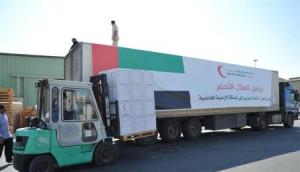






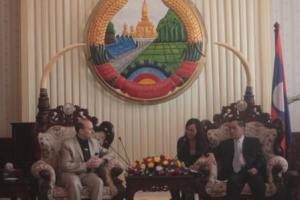

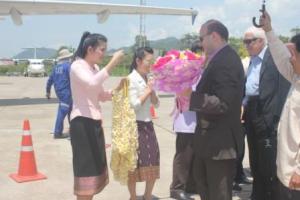




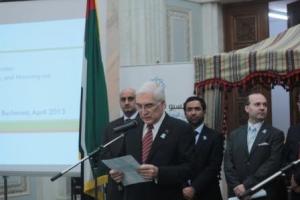

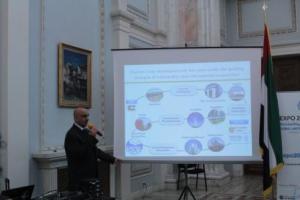












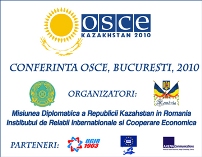

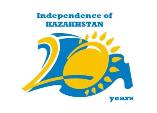






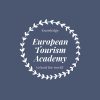
You must be logged in to post a comment.